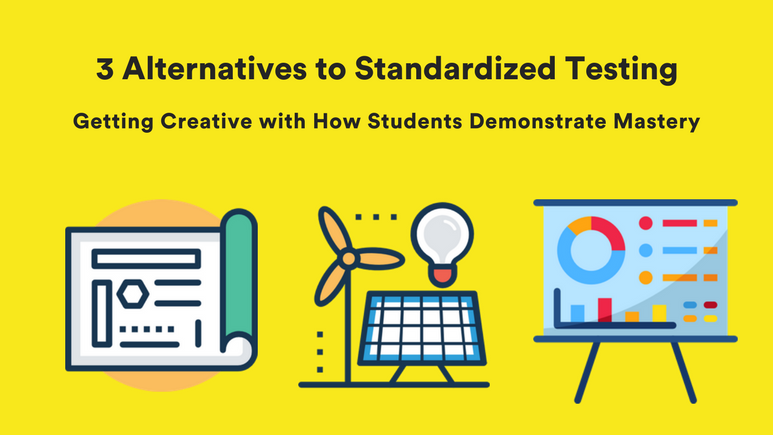
Many educators, parents, and administrators have come to see testing as a necessary evil.
The complaints against standardized testing are vehement and come from all sides.
Students hate tests because they’re boring and exhausting.
Parents worry about the unneeded stress that tests put on their children.
And teachers loathe the loss of instructional time and the pressure to make sure students have mastered every standard instead of learning for enjoyment.
Most of us agree that we test students too much. So why not just get rid of these assessments?
At the end of the day, we need standardized tests to collect standardized data.
States collect comparative data at the district, school, class, and student level.
In order to be able to compare how one district is performing compared to another, or a given student compared to his peers across the state, it’s important that students all take the same exam.
States and districts use this data to make decisions around everything from school closures to teacher performance pay.
Is this data collection mania worth it? Many people don’t think so. As a result, some states and districts have begun to explore other options.
Read on to learn more about three alternatives to standardized testing.
Portfolio or Performance Assessments
Many educators firmly believe that we should be assessing students based on the same types of work that we are preparing them for.
And let’s be real – when’s the last time you bubbled in a scantron at work?
Instead, some schools are using a combination of projects, papers, and presentations completed over the course of the year to serve as a student’s assessment.
The New York Performance Standards Consortium is a group of 30+ schools across New York State that rely on performance-based assessments to determine student mastery of skills.
Teachers create rigorous assessments that are aligned to state standards and grade them using comprehensive rubrics.
Schools in this consortium consistently have higher graduation rates than other New York schools serving similar populations.
The downside? Performance assessments are obviously much more time intensive to grade than scantrons, and the fact that teachers are grading them introduces an element of subjectivity.
Software Mediated Learning
Also known as “stealth assessment”, this approach takes advantage of the various learning platforms that students are already using throughout the course of their school days.
Many of these platforms, such as Khan Academy, Scholastic, and Typing.com record every answer that a student submits while completing online assignments.
As such, over time this data could represent a pretty comprehensive view of what a student is capable of, and what his or her learning trends are.
The great thing about this approach is that it’s invisible to students and entirely integrated into the learning experience. Instead of having to miss instructional time to take a test, students are constantly assessing in a low stakes environment.
Sounds ideal? Many teachers agree. But unfortunately, this concept is new enough that it hasn’t been fully rolled out anywhere.
Additionally, in order to use stealth assessment for comparative data, states would have to commit to using the same learning platforms in all schools.
Game-based Assessments
We’re willing to bet most students would rejoice over this option.
Similar to software-mediated learning, there are a number of educational games that some educators believe would be the ideal replacement for standardized tests.
SimCityEDU, Mars Generation One: Argubot Academy, and Nitro Type teach everything from systems thinking to persuasive writing to typing.
They do this through fun interfaces, imaginary worlds, and video game inspired levels.
The outcome? Students enjoy learning and practicing new skills and teachers are able to collect data on what kids are capable of.
While these games have predominantly been used as instructional aids in a blended learning environment, many educators are wondering why they couldn’t replace standardized tests with a few tweaks.
Chances are, we won’t be saying goodbye to standardized tests in the next year or two. But with a little time and creativity, there are definitely options that could make assessing students a lot less boring and a lot more fun.
Have you come across any other successful examples of keeping track of students’ progress across larger groups and maintaining standards? Let us know in the comments!



Leave a Reply